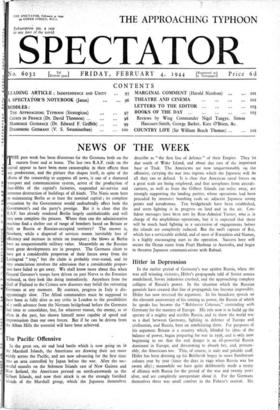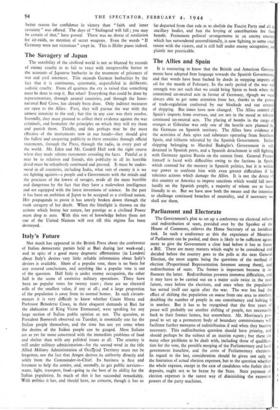Hitler in Depression
In the earlier period of Germany's war against Russia, when she was still winning victories, Hitler's propaganda told of Soviet armies annihilated, Soviet industries crushed, and the approaching complete collapse of Russia's power. In the situation which the Russian generals have created that line of propaganda has become impossible. Hitler has now reversed the argument. In his broadcast speech on the eleventh anniversary of his coming to power, the Russia of which he speaks has become the "Bolshevist Colossus," contending with Germany for the mastery of Europe. His role now is to build up the spectre of a mighty and terrible Russia, and to show the world war as a duel between Germany, fighting in defence of Europe and civilisation, and Russia, bent on annihilating them. For purposes of his argument Britain is a country which, blinded by ideas of the balance of power, began preparing for war in 1936, and is only now beginning to see that the real danger is an all-powerful Russia dominant in Europe, and threatening to absorb her, and, presumably, the Americans too. This, of course, is stale and pitiable stuff. Hitler has been dressing up his Bolshevik bogey in more flamboyant colours year by year (since the days in 1940 when Russia was his sworn ally); meanwhile we have quite deliberately made a treaty of alliance with Russia for the period of the war and twenty years after, and are completely unrepentant about it. For the Germans themselves there was small comfort in the Ftihrer's oration. No
better reason for confidence in victory than "faith and inner certainty" was offered. The days of "Stalingrad will fall ; you may be certain of that," have passed. There was no threat of retaliation for air-raids, no mention of secret weapons. Even the words "If Germany were not victorious" crept in. This is Hitler piano indeed.























